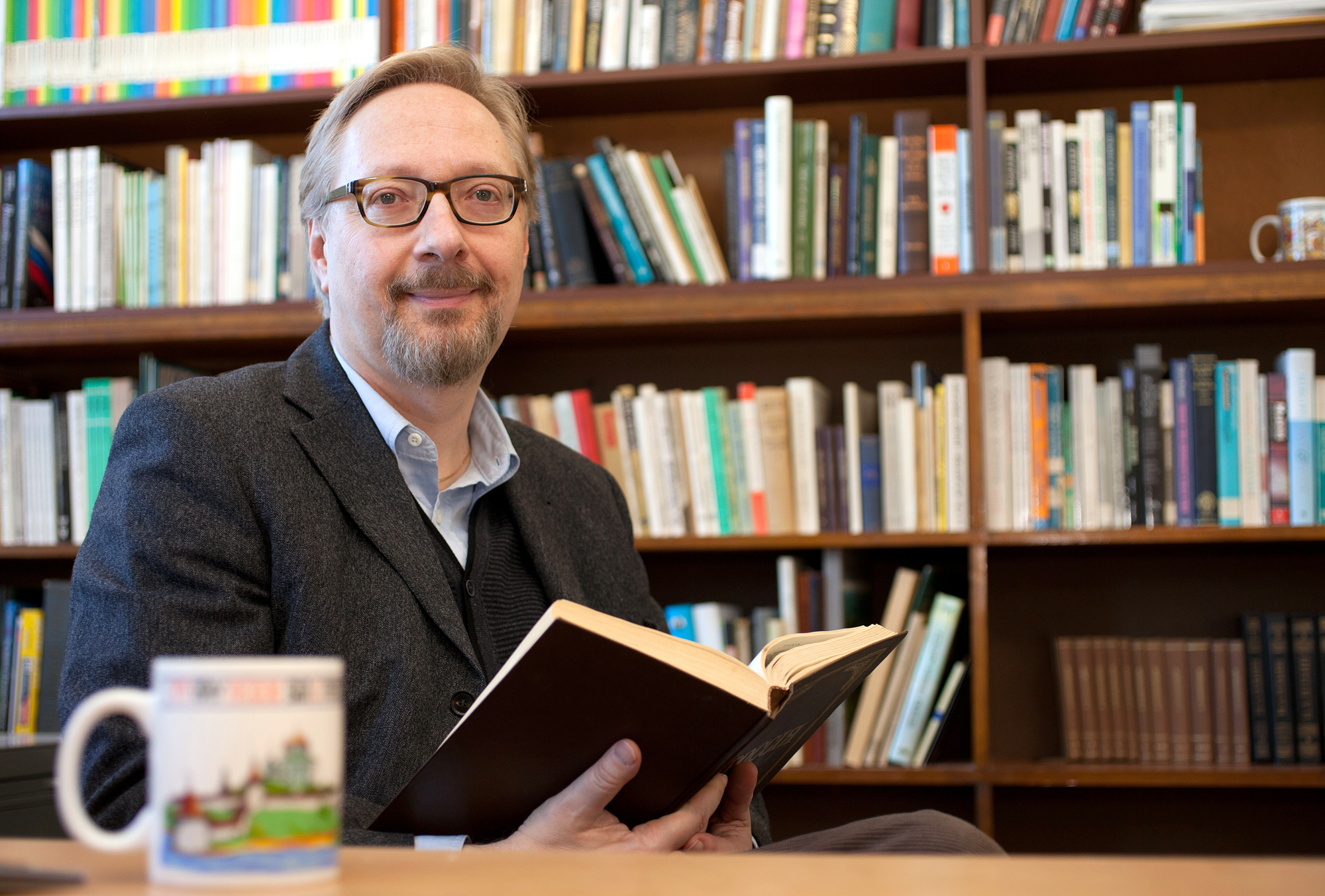Political science professor Nicolai Petro strives to support students the same way his professors did. Photo Courtesy of: Nicolai Petro
Nicolai Petro, a professor of political science at the University of Rhode Island, has used his expertise to serve in the governments of the United States and Europe, but now uses his background to teach students about the ways religion, history and cultural narratives are utilized in democratic development.
Petro became a professor at URI in 1991, after seeing a position in the monthly job newsletter for the American Political Science Association (APSA). Petro said that he was especially interested in the location because his wife’s family can trace their roots back to Rhode Island to the earliest settlers.
Petro himself was born and raised in Germany among the Russian emigration, which is how he became captivated by the language and the country itself. Petro’s father was a refugee, during World War II, from the Soviet Union.
“It was an advantage that I had going into higher education,” Petro said. “I was one of few people in college at the time who spoke Russian easily and had access to sources and a familiarity with the cultural context so it was those advantages that I relied on but at the same time, I was careful not to limit my options to that.”
Once he finished high school in Rome, Italy, Petro decided he wanted to make a life in the United States and in 1976 he was accepted to the University of Virginia through the Echols Scholars Program.
The program essentially draws in students from all backgrounds to pursue an education at the University by waiving some general requirements in courses. This allows flexibility for students to enroll in courses and academic requirements specific to their scholarly interests.
“I built close relationships with professors with the courses I took and once I became involved in those courses, they asked me to do more and they asked me to write up an honors history thesis and I was invited to do a lot of things,” Petro said.
Petro believed his professors saw potential in him and now that he is a professor he hopes that he provides his students with that same support.
Kavita O’Keefe, a fourth-year student triple majoring in political science, journalism and criminology, has experienced her first semester with Petro and has found his work to be important.
“He is extremely passionate and knowledgeable and explains complicated topics in a way that students can relate to and understand,” she said. “He also establishes strong connections and communicates with his students, often challenging us to think outside the box.”
Petro graduated from the University of Virginia with three degrees including a Bachelor’s in History in 1980, a Master’s in Public Administration in 1982 and a P.h.D. in Foreign Affairs in 1984.
Shortly after, in 1987, Petro taught at the Middlebury Institute of International Studies at Monterey and founded the Center for Contemporary Russian Studies in the institute. Then, from 1989 until 1990, Petro began work in the government.
“I was awarded as a very young man an International Affairs fellowship by the Council on Foreign Relations, which takes academics and places them in mid level career positions in the State Department for a year,” Petro said.
While in this position, Petro served as a special assistant for policy, specifically, in the Office of Soviet Union Affairs in the U.S. Department of State under the president George H.W. Bush. Additionally, he was also a temporary political attache at the U.S. Embassy in Moscow where he monitored elections in Russia, Belarus and Latvia.
Petro explained that after the completion of the fellowship, which takes one year, they are asked which direction they would like to take their career. Some of the options included staying in government work, going into a more finance type of career, or academics.
“I spoke to a lot of people who later became ambassadors and I met a lot of interesting people along the way, who had very distinguished careers,” he said. “It was an introduction to a world of influence, power and wealth and that is a rare experience for anyone, but ultimately I think it is less satisfying to me than freedom, the freedom to write and do research on whatever I wanted, rather than what the Secretary of State wanted.”
Some of this freedom includes being able to research and write informative literature. His latest book, “The Tragedy of Ukraine: What Classical Greek Tragedy Can Teach Us About Conflict Resolution,” is set to release next month.
Petro is married with two children who have served in the United States Army and Navy and are currently creating lives of their own. As of right now, Petro hopes that his career of teaching will continue until he is ready to retire back in Europe.

